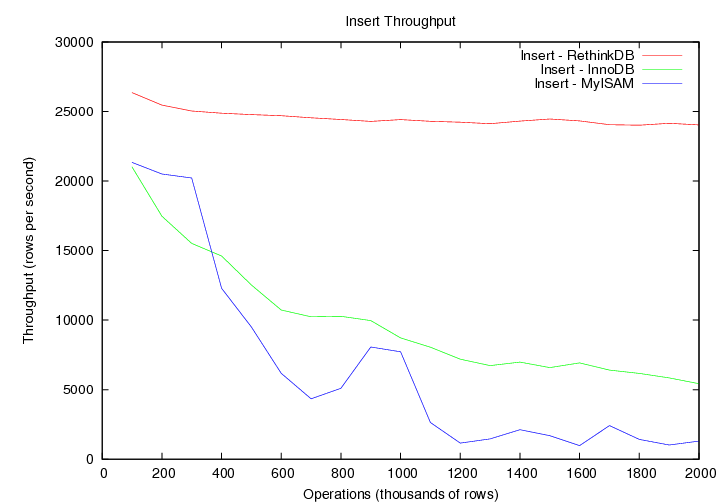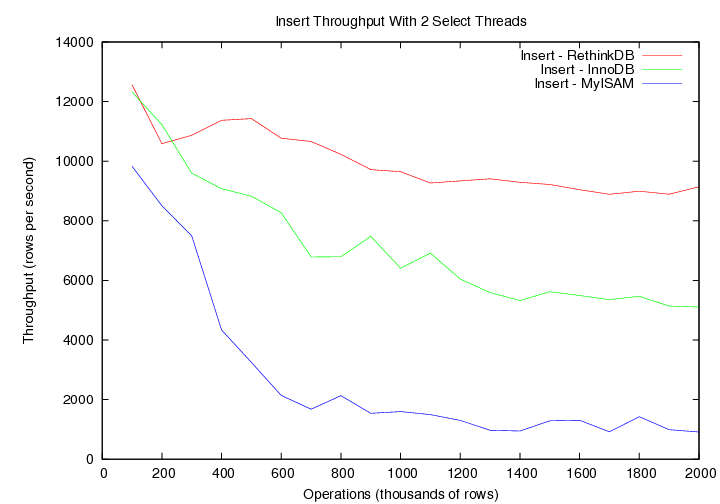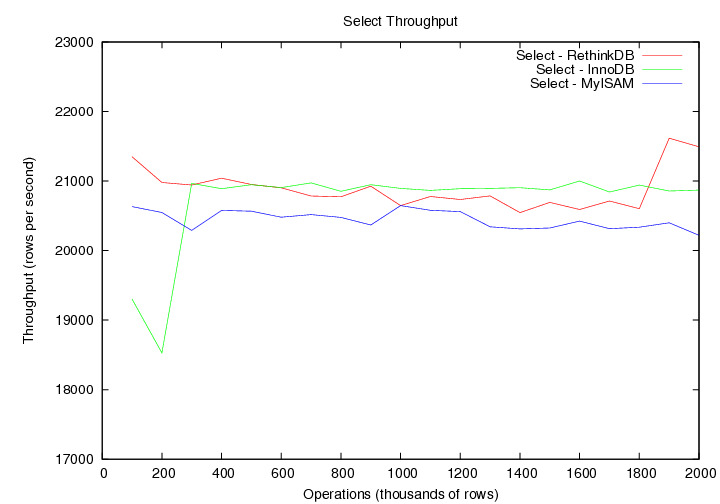RethinkDB performance data
It’s been a busy and exciting week since we announced RethinkDB. Of all the feedback we received, the most common request was for performance numbers. Before the launch our top priority was correctness. We spent most of our time testing RethinkDB with Wordpress and adding the missing features. As a result, performance suffered. In the past week we tuned the engine back up to high performance. We’re still far from finished with the improvements we want to make, but we feel that we’ve reached a level of performance we can be proud to display.
We wrote our original benchmarking tool in Python, but during our latest
benchmarks, we noticed that it was taking about as much time as the engine
itself, hiding our real performance numbers. We now have a very small
Objective-C program (<900 lines) that uses prepared statements in a tight loop,
and times only across the mysql_stmt_execute() call. For inserts, the
benchmark creates a table with three INT columns, two being indexed, and
performs N random (non- duplicate) INSERTs (k,k,k) in a loop. For selects,
it performs N random indexed point queries. An optional number of SELECT
threads run as well, each thread doing repeated indexed point queries
throughout execution of the main timed thread.
The benchmarks were run on a 2.5 GHz Pentium Core 2 Duo machine with 2 GB RAM,
on a 16 GB SUPER TALENT MasterDrive, an MLC solid state drive, connected via a
3 GB SATA II bus. RethinkDB and MyISAM were run with the stock config options.
We ran the InnoDB test by starting the server with
--innodb_flush_log_at_trx_commit=0 --innodb_support_xa=0
--innodb_buffer_pool_size=1536M.
Here are the results:

For insert performance, RethinkDB maintains a 10x improvement in throughput over MyISAM, with an average of 24534.597 rows/sec up to 2,000,000 rows, while InnoDB handles 8527.424 rows/sec, and MyISAM manages only 2483.277 rows/sec. With more frequent measurements, we can see that InnoDB and MyISAM maintain generally high throughput, but pause periodically for long stretches of time. We believe that this is due to their B-tree structure, which need to expand once in a while, a time-consuming operation that greatly undermines their overall performance.
The threaded benchmark is a bit different:

We’ve also benchmarked selects with no writers:

RethinkDB’s select performance is on par with MyISAM and InnoDB for threaded and non-threaded benchmarks. The performance bottleneck for short selects is in the network stack, and while we have plans to tackle this problem, we won’t get to it for a while. However, our algorithms significantly improve RethinkDB performance on long selects and joins – we will write a blog post soon with more detailed results.
As always, comments and concerns are welcome, on our blog, Twitter, or at info@rethinkdb.com.
 RethinkDB Team
RethinkDB Team